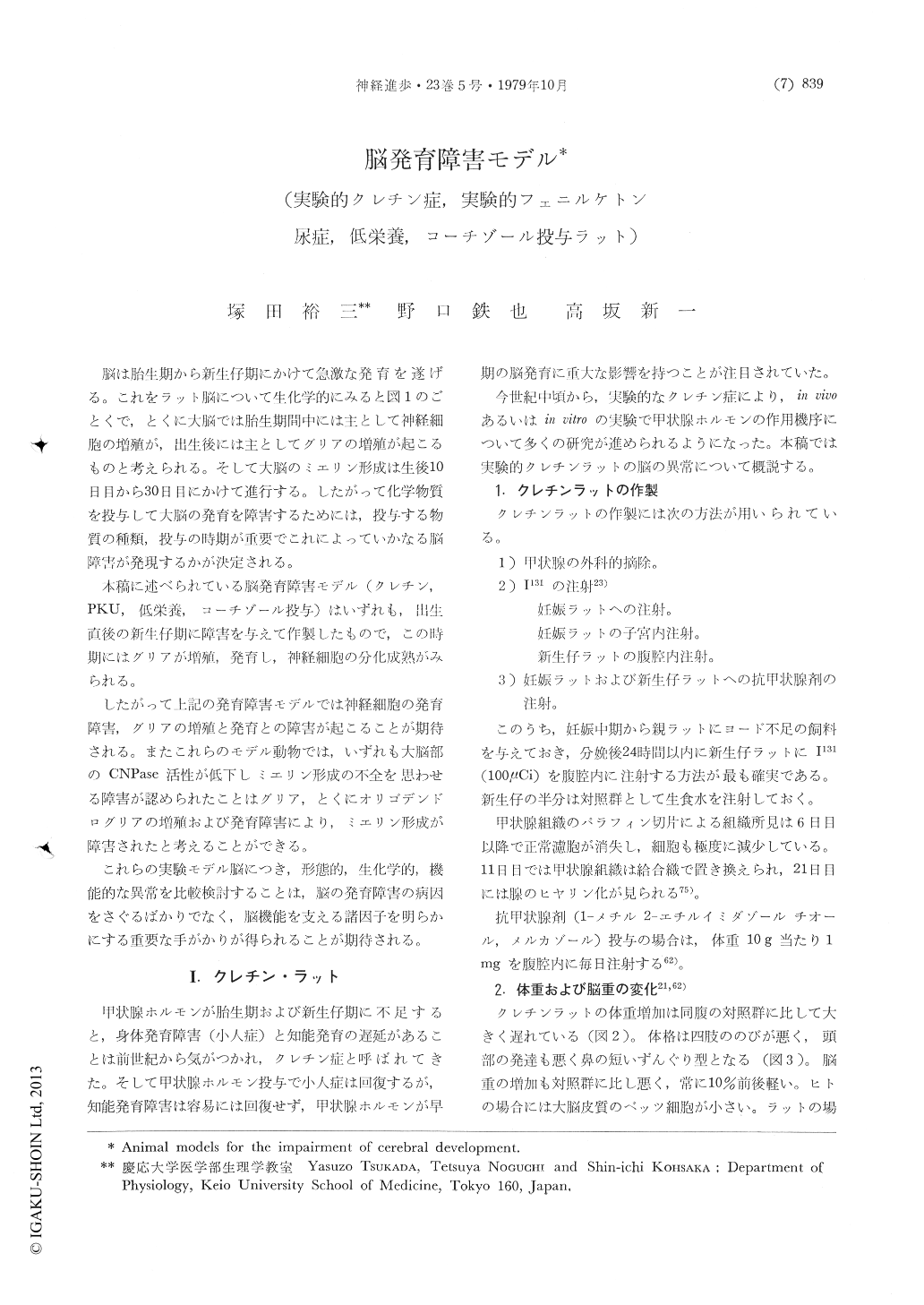Japanese
English
- 有料閲覧
- Abstract 文献概要
- 1ページ目 Look Inside
脳は胎生期から新生仔期にかけて急激な発育を遂げる。これをラット脳について生化学的にみると図1のごとくで,とくに大脳では胎生期間中には主として神経細胞の増殖が,出生後には主としてグリアの増殖が起こるものと考えられる。そして大脳のミエリン形成は生後10日目から30日目にかけて進行する。したがって化学物質を投与して大脳の発育を障害するためには,投与する物質の種類,投与の時期が重要でこれによっていかなる脳障害が発現するかが決定される。
本稿に述べられている脳発育障害モデル(クレチン,PKU,低栄養,コーチゾール投与)はいずれも,出生直後の新生仔期に障害を与えて作製したもので,この時期にはグリアが増殖,発育し,神経細胞の分化成熟がみられる。
Summary
Human mental retardation is thought to be the outcome of aberrant patterns of cerebral development which is highly modulated by environmental factors such as somatosensory inputs, hormonal secretion or nutritional balances. Many investigators have attempted to study some possible mechanisms involved in higher nervous activity using experimental model animals, such as phenylketonuric and hypothyroid animals.
In this paper, some neurochemical changes and discriminative learning ability were reviewed using animal models of which cerebral development was experimentally impaired.

Copyright © 1979, Igaku-Shoin Ltd. All rights reserved.


